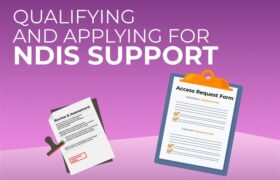- Be Your Personal Best
Warning: foreach() argument must be of type array|object, string given in /home/u637612890/domains/9dcare.com.au/public_html/wp-content/themes/9dcare-theme/inc/custom-functions.php on line 503
Improvements for the NDIS Act? Have your say!
As of 9th September, to 7th October a consultation period is in place for making legal changes to the NDIS Act. These changes will take place in the form of an amendment bill and strive to bring forth improvements as to the way the NDIS currently functions.
As the NDIS grows and more participants become involved in the scheme, it is vital that reviews and changes are made to the act to ensure it evolves alongside participant needs. The main goal of the NDIA serves to assist participants with disabilities in achieving their goals and growth. However, as it currently stands, a number of issues prevent it from always functioning in the way it is intended to. The scheme has certain outdated regulations which need updating in order to beneficially serve the community. We have noted and addressed some important sections of the amendment bill and what the changes will mean for the community here.
Several changes are highlighted in bill to update the legislation and improve the scheme as a whole. One of these changes includes a mandatory 21-day turnaround for a decision from the NDIS once a participant has submitted their request. As it currently stands, the response timeframe is 21 days. However due to missing information or resources the participant needs to get hold of or resubmit, it can often take longer causing a lengthy delay in when the participant can actually start receiving services. Alongside this 21-day decision, the new bill would include timeframes from the NDIA in relation to plans, and more communication from the NDIA about what is needed and why they made their decision upon approval or rejection.
This would allow for participants, and the greater public to have more visibility as to what to expect from the NDIA and how to plan accordingly. Ideally the transparency will assist the scheme to run more effectively and in a timely manner. With transparency and fast communication from the NDIA, participants would be able to gather all necessary documents/information quickly and accurately for their plan. This would also allow for participants to begin working with a service provider sooner to get the assistance they need. As it stands, often by the time participants have gone through the process of simply gaining approval from the NDIA, they are eager to begin the services that are available to them and do not get enough time to properly work with their providers and identify what is best suited for them in the beginning stages.
Another benefit of NDIA transparency is reassessments could be made simpler and done more frequently. This would help to ensure the right amount of funding is going to the right place. Participants could have more say and work with support coordinators to change their plan as their circumstances shift, without impacting services a great deal. The government would also be able to easily review and change areas that are not serving the scheme to the best of its ability.
While all these changes are being proposed to assist the NDIA to improve, we wonder if the NDIA is equipped to handle such change and evolve as it currently it? Before these regulations are put in place, is the government providing enough resources to the NDIA to allow this to take place effectively? How will this impact the workload and ability for LACs to create plans that best meet the need of their participants? It is crucial that LACs, plan mangers and support coordinators input their feedback during this consultation period to ensure the regulations are accurately set up for success.
Providers and participants need to be looped on these possible changes and include their feedback as well. Will the bill include exemptions for changes occurred based on evolving circumstances of participants? Considering circumstances around the pandemic and how providers and the NDIA will manage to meet deadlines if the bill is put into place should also be included before any finalizations take place.
A large function of the bill is meant to include how the NDIA should communicate and engage with participants, but how many participants are aware of these changes being discussed? Are their current feedback and needs truly being considered in place? The service guarantee should be created around a focus of what participants have mentioned. How visible are these laws for existing participants- are they aware of what they are eligible to receive? Without the NDIA providing easy to read transparency to participants when changes such as these are being considered, are they truly working for a scheme built on the needs of participants?
Another part of the bill states NDIA being able to pay providers directly. The purpose of this is to allow participants to be able to spend time focusing on how they actually want to use their plan instead of organizing their funding. However, how could this also impact plan management? Will this eventually be removed from NDIA funding for participants? How will the NDIA manage each individual participants funding and how providers are utilizing it? Will there be any differences in how providers who are not registered with the NDIS will receive plan payments? Prior to this being put in place the NDIA should be responsible to provide answers for all potential outcomes.
This is an extremely important time for participants, providers, and families to get involved and assist the NDIA in making changes that truly are in the best interest of the purpose of the scheme. Read more about the bill and have your say on how you feel about these changes and what improvements the NDIA should prioritize focusing on here
Navigating the National Disability Insurance Scheme (NDIS) can be a complex journey, especially when addressing unique and individual needs. But.
The National Disability Insurance Scheme (NDIS) plays a crucial role in supporting individuals with disabilities, helping them access the services.
The National Disability Insurance Scheme (NDIS) is an initiative aimed at transforming the lives of individuals with disabilities in Australia..
Disability is a part of life that requires understanding, cooperation, and encouragement. For those who experience it, finding the right.
Therapy can be a game-changer in helping you achieve your goals—whether it’s moving more freely, improving your communication skills, or.
With the annual budget release, there has been a lot of chatter surrounding the NDIS and the allocated funding for.





